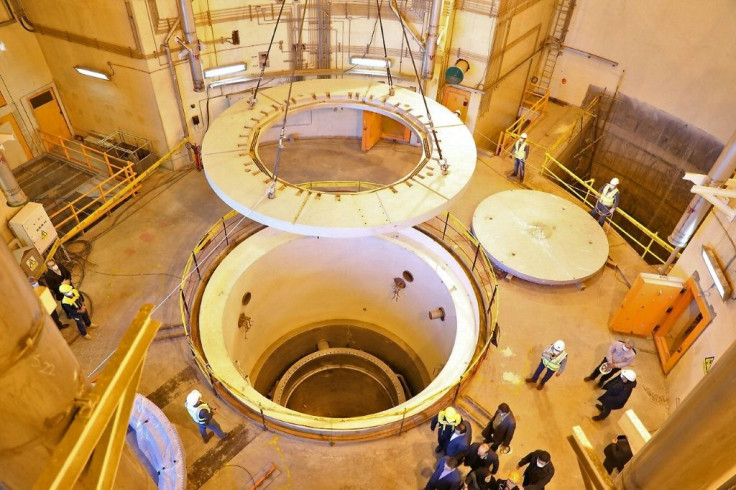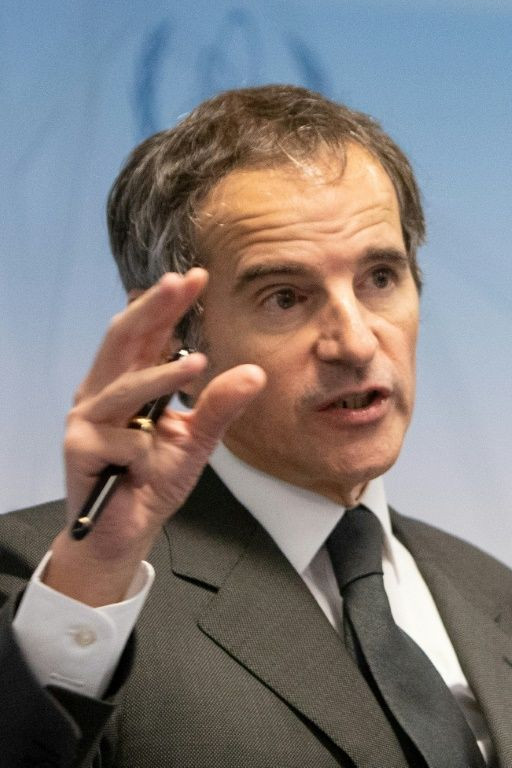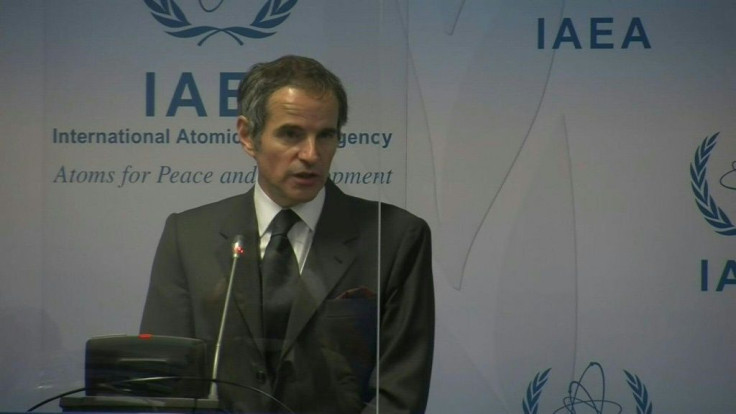Iran, UN Nuclear Monitor Extend Inspection Deal For A Month
The UN nuclear watchdog and Iran on Monday said an agreement to monitor Tehran's activities would be extended by a month until June 24, as world powers hold talks to revive a 2015 nuclear deal.
Global powers have been meeting in Vienna since early April in a bid to bring Washington back to the deal -- which the US left in 2018.
The withdrawal under then president Donald Trump and re-imposition of sanctions led to Iran stepping up its nuclear activities.
Iran in late February limited the International Atomic Energy Agency (IAEA)'s access to nuclear sites it has been monitoring as part of the 2015 deal.

A three-month agreement reached on February 21 allowing some inspections to continue was extended by another month, the IAEA announced.
"The verification and the monitoring activities that we agreed will continue as they are now for one month expiring on June 24th, 2021," IAEA director general Rafael Grossi told a news conference.
Tehran has also agreed that information collected so far by agency equipment in Iran would not be erased, he added.
Negotiators, trying to save the 2015 nuclear deal, welcomed the announcement.
EU negotiator Enrique Mora, who is chairing the talks in Vienna, said diplomats would "redouble efforts" to get the deal back on track.

"Good news... It allows for a bit more space to reach an agreement in Vienna," he said on Twitter, adding talks will resume again on Tuesday.
The Russian ambassador to the UN in Vienna, Mikhail Ulyanov, called extending the agreement a "commendable step", while a US official speaking on condition of anonymity "welcomed" it.
Grossi said the outcome of the "long discussion" with Iran to extend the technical understanding between the agency and the Islamic republic was "important" but the situation was "not ideal".

"We should all be reminded that the temporary understanding is a sort of stop-gap measure. It is something that we came up with as a way to avoid flying completely blind," he said.
Iran's Supreme National Security Council said in a statement the one-month extension aimed to "provide the needed opportunity for negotiations to progress and produce results."
Iran's envoy to the IAEA, Kazem Gharibabadi, also confirmed the agreement's extension, Iranian news agency IRNA reported.
"I advise (the countries taking part in Vienna talks) that this opportunity, which was provided over Iran's good faith, be used towards the complete lifting of sanctions in a practical and verifiable manner," he was quoted as saying.
Iran insists Washington must lift sanctions it imposed after leaving the deal before Tehran pulls back its nuclear activities again.
The 2015 accord had Iran curtail its nuclear programme in return for sanctions relief.
Iranian foreign ministry spokesman Saeed Khatibzadeh said Monday that the talks in Vienna depend on a "political decision" by the US, after Washington questioned Tehran's readiness to return to compliance with the accord.
"We have had very significant progress and still think that an agreement is within reach," he told reporters.
On Sunday, ahead of the fifth round of talks, US Secretary of State Antony Blinken said it remained unclear whether Iran is "ready and willing" to take the necessary steps to return to compliance with the multi-nation nuclear agreement.
Washington and Tehran have been taking part in indirect negotiations in the Austrian capital since early April.
The talks also comprise Britain, China, France, Germany and Russia -- and they along with the EU chair act as intermediaries between Washington and Tehran.
The aim is to finish negotiations ahead of Iran's presidential elections in mid-June.
© Copyright AFP {{Year}}. All rights reserved.





















